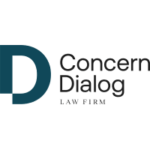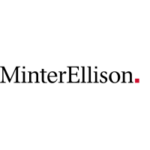-
What are the main methods of resolving disputes in your jurisdiction?
In addition to litigation, arbitration and alternative dispute resolution (ADR) procedures – such as mediation or conciliation negotiations – are common forms of dispute resolution in Germany. Court proceedings remain the predominant method of resolving disputes.
In cross-border or complex disputes, arbitration is often preferred due to its specialised nature and adaptability to international matters. The German Institution of Arbitration (DIS) recorded approximately 160 new cases in 2024, underlining its role as a central institution in both national and international arbitration.
ADR, particularly mediation or conciliation negotiations, is enjoying increasing popularity as parties seek more amicable ways to resolve their conflicts outside the traditional court environment. The German Code of Civil Procedure also encourages the amicable settlement of disputes. Courts are obliged to promote an amicable resolution of the dispute at every stage of the proceedings. Accordingly, the conduct of a conciliation hearing prior to the oral hearing is mandatory.
-
What are the main procedural rules governing litigation in your jurisdiction?
The German Code of Civil Procedure contains several fundamental procedural principles that shape the proceedings.
According to the so-called principle of party disposition, the parties have control over the conduct of the proceedings. The court is therefore bound by the applications and requests of the parties and may not go beyond what has been requested. Furthermore, the claimant may amend or withdraw their claim (see question 11). The principle of party presentation obliges the parties to present and prove the facts on which the court is to base its decision. This principle is limited by the procedural duty of truthfulness. The parties are thus responsible for the presentation and proof of facts. Only in exceptional cases does the court intervene ex officio. Hearings are, as a rule, public and are intended to take place orally before the court; written proceedings are the exception. However, it is sufficient if the parties refer to their written submissions, which have been exchanged in preparation for the oral hearing (for example, statement of claim, statement of defence, reply, rejoinder – see question 13). In addition, each party has the right to comment on the facts relevant to the decision, and the court must take note of and consider the parties’ submissions. Finally, the proceedings should be conducted and concluded without undue delay.
-
What is the structure and organisation of local courts dealing with claims in your jurisdiction? What is the final court of appeal?
The German Code of Civil Procedure recognizes four different types of courts: Local Court (Amtsgericht, AG), Regional Court (Landgericht, LG), Higher Regional Court (Oberlandesgericht, OLG), and the Federal Court of Justice (Bundesgerichtshof, BGH).
Local Courts are responsible for civil disputes with a value in dispute of up to 5,000 euros. Civil disputes with a higher value in dispute fall under the jurisdiction of the Regional Courts, which also acts as an appellate court for disputes that were heard in the first instance before the Local Court. In addition, Regional Courts serve as the first instance for the types of cases listed in Section 71(2) of the Courts Constitution Act (Gerichtsverfassungsgesetz, GVG), regardless of the value in dispute. Furthermore, Regional Courts are the first appellate instance for decisions made by the Local Courts.
Higher Regional Courts serve as the appellate instance in cases where a Regional Court previously acted as the court of first instance. They also have original jurisdiction, particularly in proceedings under the Injunctions Act (Unterlassungsklagegesetz, UklaG) or in representative actions or actions for relief under the Consumer Rights Enforcement Act (Verbraucherrechtedurchsetzungsgesetz, VDuG).
The Federal Court of Justice has jurisdiction over appeals on points of law (revisions) in cases where Regional Courts or Higher Regional Courts acted as the first appellate instance, making it the court of last resort.
Since April 1, 2025, the federal states have been able to establish Commercial Courts specializing in commercial disputes at the level of the Higher Regional Courts and Commercial Chambers at the level of the Regional Courts. The value in dispute must be at least 500,000 euros. Special procedural instruments apply, tailored to the specific needs of the business sector. At the parties’ request, proceedings may also be conducted in English. Some federal states, such as Berlin, Hamburg, Baden-Württemberg, Bremen, and North Rhine-Westphalia, have already made use of this option.
In the future, the jurisdictional threshold for Local Courts is to be raised from 5,000 euros to 8,000 euros. This is intended to strengthen the Local Courts in civil matters and, consequently, the justice system throughout Germany. In addition, the assignment of certain subject matters to the Local and Regional Courts, regardless of the value in dispute, is intended to further promote specialization and support efficient case management.
-
How long does it typically take from commencing proceedings to get to trial in your jurisdiction?
Legal proceedings are initiated by filing a statement of claim with the competent court. The claim becomes pending once it is served on the defendant. The court then decides whether to hold an initial oral hearing or to conduct preliminary written proceedings, the latter being the standard procedure. Regardless of this decision, the court sets a deadline for the defendant to submit a statement of defence. If the court decides to conduct preliminary written proceedings, it may instruct the parties to submit further documents. Once the initial oral hearing has taken place, or the court has gathered sufficient facts through the written proceedings, it schedules the main hearing.
The timeframes between the individual procedural steps depend greatly on the complexity of the matter and the general workload of the court.
As a result, several weeks or even months may pass between the filing of the claim with the court and the initial oral hearing. This period is actively used by the court to prepare the oral hearing as efficiently as possible.
The time between the initiation of proceedings and the delivery of judgment depends on the same factors. On average, proceedings before the Regional Court take approximately 18 months before a judgment is rendered.
-
Are hearings held in public and are documents filed at court available to the public in your jurisdiction? Are there any exceptions?
Court proceedings are, as a general rule, open to the public, as stipulated by the principle of public hearings in accordance with Section 169 of the Courts Constitution Act (GVG). However, public access is limited to what is known as “courtroom publicity,” meaning that only individuals who are physically present in the courtroom may attend. Audio and television recordings are generally prohibited under Section 169, sentence 2, GVG.
In certain cases, however, the public may be excluded, particularly in family disputes and in cases where there is a legitimate interest in protecting the privacy of a party or for security reasons. The pronouncement of the judgment, on the other hand, must generally take place in public.
In contrast to the principle of public hearings, documents submitted during the proceedings are not accessible to the public. Third parties may only inspect the files with the consent of all parties involved or—if the parties do not consent—if they can demonstrate to the president of the court a legitimate interest in inspecting the files.
-
What, if any, are the relevant limitation periods in your jurisdiction?
The standard limitation period under the German Civil Code is three years. It applies to all claims unless otherwise specified. The period begins at the end of the year in which the claim arose and the claimant became aware, or should have become aware without gross negligence, of both the circumstances giving rise to the claim and the identity of the debtor.
In addition, there are special limitation periods that deviate from this standard. For example, claims relating to rights in real property are subject to a limitation period of ten years. Claims established by a final court judgment, as well as claims for the restitution of property, are subject to a limitation period of thirty years.
The limitation period can be suspended by various events, in particular by the filing of a statement of claim, negotiations, or the initiation of proceedings before a registered conciliation body. The parties may also agree to waive the limitation period.
For claims by consumers that are the subject of a representative action, the suspension of the limitation period in favour of the individual consumer takes effect as soon as the consumer has registered their claims in the representative action register.
As a general rule, the defence of limitation is subject to party autonomy. A court may only dismiss a claim on the grounds of limitation if the defendant invokes the limitation period. If the defendant does not make such a statement, the court will not take the limitation aspect into account in its decision, even if the claim is obviously time-barred.
-
What, if any, are the pre-action conduct requirements in your jurisdiction and what, if any, are the consequences of non-compliance?
For most civil disputes, there are no mandatory requirements regarding conduct prior to the initiation of legal proceedings. In certain exceptional cases, however, the relevant state law stipulates that a compulsory conciliation procedure must be carried out (for example, in cases involving neighbour disputes or defamation claims). In such instances, the completion of the conciliation procedure is a mandatory procedural prerequisite, and legal action without prior conciliation is inadmissible.
In addition, parties may agree contractually to conciliation clauses which require conciliation before legal proceedings can be commenced. Such clauses are binding, provided they do not contravene statutory provisions or constitute an unreasonable disadvantage. In these cases, the parties are prevented from initiating court proceedings until they have unsuccessfully completed the agreed alternative dispute resolution procedure.
Nevertheless, it is common practice to inform the other party of the intention to commence legal proceedings by sending a warning letter, a demand for payment, or a notice to the opposing party before filing a claim with the court. Certain pre-action measures may also have legal consequences in favour of the claimant, such as suspending the limitation period or causing the debtor to fall into default, which may give rise to a claim for interest.
-
How are proceedings commenced in your jurisdiction? Is service necessary and, if so, is this done by the court (or its agent) or by the parties?
A legal action is initiated by filing a statement of claim with the competent court. The statement of claim must be submitted in writing and must include the designation of the parties and the court, details of the subject matter of the dispute and the grounds for the claim, as well as a specific claim for relief. In addition, it should contain further information, such as whether an attempt at mediation or another form of alternative dispute resolution was made prior to filing the claim, and whether there are any reasons against such a procedure.
In practice, a statement of claim usually already contains offers of evidence and exhibits supporting the asserted claim, as well as a legal assessment of the facts.
The statement of claim must be signed by a solicitor if legal representation is mandatory, which is the case before the Regional Courts and higher instances. Preparatory written submissions and their exhibits, as well as applications and statements that must be submitted in writing by a solicitor, are to be transmitted as electronic documents.
The claim must be served on the defendant in order to properly commence the court proceedings. Service is generally effected ex officio, unless it is a party service, which is only permissible in cases provided for by law.
-
How does the court determine whether it has jurisdiction over a claim in your jurisdiction?
The court examines, ex officio, its international, functional, subject-matter, and local jurisdiction after the filing of the claim.
The determination of the international jurisdiction of German courts in matters involving a connection to more than one legal system (cross-border disputes) is primarily governed by local jurisdiction under German procedural law, unless overriding international agreements or specific regulations apply. Particular attention should be paid in this regard to the EU Regulation on jurisdiction and the recognition and enforcement of judgments in civil and commercial matters (Brussels Ia Regulation) or the Lugano Convention of 2007.
As a general rule, a defendant must have their domicile or registered office in Germany in order to be sued in Germany. In addition, other factors, such as the location of a branch office, the place of performance of the contract, the occurrence of damage, or the commission of a tortious act, may establish the jurisdiction of German courts. Claims for monetary debts against a person not resident in Germany fall within the jurisdiction of the German court in whose district that person’s property is located, provided the subject matter of the dispute has a sufficient domestic connection to Germany. Agreements between the parties regarding the choice of court are generally accepted; however, such agreements may be invalid if a consumer is a contracting party.
If the circumstances determining the jurisdiction of the court change, the court does not lose its jurisdiction (perpetuatio fori).
-
How does the court determine which law governs the claims in your jurisdiction?
As a general rule, a court applies the procedural law of the state in which it is located (lex fori). This applies regardless of which substantive law is to be applied to the case. Therefore, German courts generally apply German procedural law, even if the substantive law of another state is applicable to the matter at hand.
The determination of the applicable substantive law is usually carried out by applying conflict-of-law rules, which are established in private international law. These may be both national and international provisions. The German conflict-of-law rules can be found in the Introductory Act to the Civil Code (EGBGB) as well as in the Rome I and Rome II Regulations. According to Article 3 No. 1 EGBGB, the Rome I and II Regulations are to be given priority. The law applicable to contractual and non-contractual matters is therefore to be determined by these regulations. The provisions of the EGBGB thus only influence the determination of the applicable law in matters of family law, inheritance law, and property law.
-
In what circumstances, if any, can claims be disposed of without a full trial in your jurisdiction?
There are several ways to conclude proceedings without a full trial.
Firstly, the claimant may unilaterally withdraw their claim. This results in the main matter no longer being pending and the proceedings coming to an end. Up until the oral hearing, the defendant’s consent is not required. After that point, withdrawal of the claim is only possible with the defendant’s consent.
Furthermore, the parties may reach a settlement, either in or out of court, which brings the legal dispute to an end. A court settlement is recorded by the court and has binding effect.
In addition, the parties may jointly declare the dispute resolved if the grounds for the claim have ceased to exist after the claim was brought. Such a joint declaration of resolution immediately terminates the main proceedings without the court making a substantive decision.
-
What, if any, are the main types of interim remedies available in your jurisdiction?
In civil law, there are essentially two forms of interim legal protection, which serve to establish provisional arrangements or to secure rights before a decision is made in the main proceedings.
Attachment is used to secure monetary claims or claims that can be converted into money. A distinction is made between proprietary attachment (securing assets) and personal attachment (securing by means of deprivation of liberty). The prerequisite is a ground for attachment, such as the risk that enforcement of the claim would be frustrated or significantly impeded without the attachment.
Interim injunctions, on the other hand, serve to secure claims that are not directed at money. In addition, the applicant may also apply for an interim injunction to provisionally regulate a legal relationship in order to avert significant disadvantages for themselves. An application for an interim injunction is well-founded if the applicant can convince the court that there is a claim to an injunction and a ground for the injunction. The latter must justify the urgency of granting an interim injunction.
-
After a claim has been commenced, what written documents must (or can) the parties submit in your jurisdiction? What is the usual timetable?
Claims are initiated by the submission of a written statement of claim, which generally already includes evidence, supporting documents, and submissions on points of law (see question 8). The court decides whether to hold an initial oral hearing or to conduct a written preliminary procedure (the latter being the standard practice) and serves the statement of claim on the defendant.
If the court orders the written preliminary procedure, the defendant must, within two weeks, indicate whether they intend to defend the claim. In addition, the defendant is given a further two-week period to submit a written defence.
If the court considers it necessary, it may order the claimant to reply to the defendant’s defence, and the defendant to submit a rejoinder.
There must be a period of at least two weeks between the submission of the various pleadings. Depending on the complexity of the matter, these minimum requirements are generally exceeded. Furthermore, the parties may apply for an extension of the deadlines set by the court. Such applications are generally granted.
The timetable therefore depends heavily on the scope and complexity of the matter and the capacity of the court, as well as on the ability and willingness of the parties to submit the required documents within a reasonable period.
-
What, if any, are the rules for disclosure of documents in your jurisdiction? Are there any exceptions (e.g. on grounds of privilege, confidentiality or public interest)?
German civil procedure law, in contrast to many common law jurisdictions, does not provide for mandatory rules regarding the disclosure of documents by the parties.
As a general principle, each party bears the burden of proof for the facts on which its claim or defence is based. This means that the parties themselves decide which facts and documents are presented to the court (see question 2). There is no rule obliging a party to disclose all available information that might be relevant to the case. However, the information provided to the court must be true and accurate.
This principle is occasionally mitigated by the reversal of the burden of proof, presumptions, and rights to information. These exceptions serve to balance informational disadvantages between the parties, particularly in relationships between consumers and businesses.
In certain circumstances, a court may order one of the parties or a third party to produce records, documents, or other material in their possession to which one of the parties has referred. However, German courts are very reluctant to apply this provision.
-
How is witness evidence dealt with in your jurisdiction (and in particular, do witnesses give oral and/or written evidence and what, if any, are the rules on cross-examination)? Are depositions permitted?
Witness evidence plays a central role in civil proceedings, but it is subject to specific requirements and principles. A proper offer of evidence requires the naming of the witness and the specification of the facts to be proven. The court cannot substitute the examination of a witness with reference to other means of evidence, such as documents, if a party has expressly requested the examination of the witness.
The court summons a witness after a party has applied for the witness to be heard on a particular matter, provided the court considers the disputed fact, for which witness evidence has been offered, to be relevant to the decision. Once the witness has been informed, he or she is obliged to appear before the court and to tell the truth.
The credibility of a witness depends largely on the personal impression made upon the court. For this reason, the direct examination of the witness is required. Witnesses may only give oral testimony. In practice, the witness is mainly questioned by the court, although the parties and their representatives are also permitted to ask questions. When the parties and their representatives question the witness, extensive cross-examination is usually prevented by the court, as the court decides on the admissibility of the questions. In particular, questions that go beyond the subject matter outlined in the witness’s summons are inadmissible.
German civil procedure law does not allow depositions, as witnesses must testify orally.
-
Is expert evidence permitted in your jurisdiction? If so, how is it dealt with (and in particular, are experts appointed by the court or the parties, and what duties do they owe)?
Expert evidence is a central means of proof in civil proceedings. Expert evidence serves to clarify facts that require special technical knowledge. The court decides whether an expert report is necessary and selects the expert. The court may hear the parties before appointing the expert in order to allow them to propose a suitable expert. If the parties unanimously agree on an expert, the court is bound by this decision.
Unlike an ordinary witness, an expert may present their findings either orally or in writing. The decision in this regard lies at the discretion of the court. If the expert is required to appear in person before the court, they may be questioned by the parties in the same manner as an ordinary witness (see question 15). The expert must prepare the report personally and may not delegate this task to a third party.
In cases with similar circumstances, the court may, for reasons of procedural economy, replace the obtaining of a new expert report by referring to and making use of an expert report submitted in parallel proceedings.
In addition to the expert procedure, the parties may also submit reports which they have commissioned themselves. However, such reports are not regarded as independent expert evidence within the meaning of the Code of Civil Procedure, but rather as part of the party’s submissions.
-
Can final and interim decisions be appealed in your jurisdiction? If so, to which court(s) and within what timescale?
Appeals against judgments of the Local Courts (Amtsgerichte) and Regional Courts (Landgerichte) may be lodged with the next higher court if the value of the subject matter of the complaint exceeds 600 euros or if the court of first instance has allowed the appeal.
Final judgments delivered in the appeal instance may be subject to a further appeal (revision) to the Federal Court of Justice (Bundesgerichtshof). However, this requires that the court of appeal has granted leave for such a revision. If the court of appeal refuses to grant leave to appeal to the Federal Court of Justice, this refusal may be challenged before the Federal Court of Justice by means of a complaint against the denial of leave to appeal (Nichtzulassungsbeschwerde). A prerequisite for this is that the value of the matter to be pursued by way of revision exceeds 20,000 euros.
Legal remedies against judgments must be lodged within one month of service of the judgment. These time limits cannot be extended.
Interim decisions may be challenged by means of a time-limited complaint (fristgebundene Beschwerde) or a legal complaint (Rechtsbeschwerde/sofortige Beschwerde). The time-limited complaint is comparable to an appeal on both facts and law, whereas the legal complaint is comparable only to an appeal on points of law. A time-limited complaint must be filed within two weeks of the interim decision with the court whose decision is being challenged or with the court hearing the complaint. A legal complaint must be lodged within one month with the court hearing the complaint.
-
What are the rules governing enforcement of foreign judgments in your jurisdiction?
As a member state of the European Union, the recognition and enforcement of judgments from other EU member states are primarily governed by the Brussels Ia Regulation. According to Article 39 of this regulation, a judgment rendered in one member state that is enforceable in that member state is enforceable in the other member states without the need for a declaration of enforceability. The enforcement of such a judgment can only be refused on strict and limited grounds, with the most prominent reason being a violation of public policy (ordre public) in the addressed member state.
A judgment of a court of a state that is not a Member State of the Brussels Ia Regulation may be enforced under different rules.
Firstly, the judgment may be covered by one of the many multilateral or bilateral treaties between Germany and other countries. For example, the enforcement of judgments from Iceland, Norway, and Switzerland in Germany is possible based on the Convention on Jurisdiction and the Recognition and Enforcement of Judgments in Civil and Commercial Matters of 21 December 2017 (Lugano Convention). International agreements, such as the Hague Convention on Choice of Court Agreements or the New York Convention on the Recognition and Enforcement of Foreign Arbitral Awards, can also be relevant.
Secondly, enforcement may be considered under §§ 328, 722, 723 of the German Code of Civil Procedure (ZPO) if the judgment does not originate from an EU member state and is not covered by an international treaty on the enforcement of foreign judgments. According to these provisions, recognition is excluded if: (i) the courts of the state to which the foreign court belongs do not have jurisdiction according to German law; (ii) the defendant, who did not appear in the proceedings and claims not to have been properly served with the document initiating the proceedings, or not within a time frame that would have allowed them to defend themselves; (iii) the judgment is incompatible with a judgment rendered in Germany or with a previously rendered foreign judgment that is to be recognized, or if the proceedings underlying the judgment are incompatible with proceedings that were previously pending in Germany; (iv) the recognition of the judgment would lead to a result that is obviously incompatible with fundamental principles of German law, particularly if the recognition is not compatible with fundamental rights; (v) reciprocity has not been granted.
-
Can the costs of litigation (e.g. court costs, as well as the parties’ costs of instructing lawyers, experts and other professionals) be recovered from the other side in your jurisdiction?
Generally, the losing party must bear the court costs and all litigation expenses incurred by the winning party, insofar as these were necessary for the appropriate pursuit or defence of the legal action. These include, among other things, travel expenses of the party and their representatives, compensation for time lost, and above all, the costs incurred by the party for engaging solicitors. However, solicitor’s fees can only be reimbursed up to the rates specified in the Solicitor’s Remuneration Act (RVG).
There are, however, some exceptions to this rule. If the claimant withdraws their claim (see Question 11), they bear the costs of the litigation unless the court has made a binding decision on the matter or the costs are imposed on the defendant for some reason. If the parties jointly declare the matter settled (see Question 11), so that neither party prevails, the court decides on the costs at its discretion, taking into account the circumstances and facts as well as the current state of affairs. If each party prevails with part of their claims, the costs are either offset against each other or shared proportionately. Finally, the claimant bears all costs if the defendant gave no cause for the action to be brought and immediately acknowledges the claim.
-
What, if any, are the collective redress (e.g. class action) mechanisms in your jurisdiction?
In contrast to many common law jurisdictions, collective legal protection is traditionally not recognised in the German Code of Civil Procedure. A fundamental principle of German civil procedural law is that only the parties to a civil proceeding are bound by the outcome of such a proceeding. Nevertheless, in recent years, the legislature has created certain forms of collective actions in some areas that enable collective legal enforcement. These differ in their design and objectives.
Model Declaratory Action
In 2018, the model declaratory action was introduced into the German Code of Civil Procedure (ZPO), creating a mechanism that more closely resembles a collective redress system. Under these provisions, qualified consumer associations may bring an action against a company to determine the existence or non-existence of factual or legal requirements that are necessary for individual consumer claims against the company. This serves to clarify key legal questions in cases involving a large number of similar claims.
For a model declaratory action to be admissible, at least 50 consumers must join the action. Affected consumers must therefore actively register in order to benefit from the decision. To conclude the proceedings, the parties may either reach a court settlement or obtain a court decision. A court settlement between the consumer association and the company has binding effect on the consumers, preventing them from bringing a new claim against the company on the same factual basis. If the parties do not reach such a settlement, the court’s decision on factual and legal issues is binding in subsequent court proceedings between a consumer who joined the model declaratory action and the defendant company.
Consumers can avoid both outcomes by withdrawing from the model declaratory action, even after the parties have agreed on a settlement. However, the model declaratory action merely leads to a judgment that establishes certain factual or legal prerequisites for an action, meaning that consumers must subsequently assert their claims individually.
Remedial Action Claim
The German Consumer Rights Enforcement Act, which entered into force on 13 October 2023 and is based on Directive (EU) 2020/1828 (the Representative Actions Directive), has incorporated the model declaratory action into this legislation and, at the same time, introduced a new type of representative action for performance or damages, which applies to all disputes between consumers and businesses (“remedial action claim”). A combination of the model declaratory action and the remedial action claim is possible.
All matters that could be litigated in an individual action can now be addressed in these representative actions. Such actions may only be brought by a qualified entity, which must demonstrate in its statement of claim that at least 50 consumers are affected and that their claims raise essentially similar legal or factual questions. The opt-in principle also applies here, meaning that each individual consumer or eligible small business (i.e., businesses with fewer than 50 employees and an annual turnover of no more than 10 million euros) must actively choose to register within three weeks after the conclusion of the oral hearing at first instance.
The remedial procedure is divided into three phases: First, there is the judicial remedial procedure, which includes the fundamental remedial judgment on the merits, a settlement assessment phase, and, if no settlement can be reached, the final remedial judgment including the total compensation amount.
The first phase is followed by the implementation phase, during which compensation is distributed by a court-appointed administrator, who determines eligibility and the amount of individual damages. The administrator’s decision is subject to judicial review. Finally, there is a possible follow-up procedure – for example, if the administrator has wholly or partially rejected a claim asserted by a consumer during the implementation phase, or if the defendant company raises objections, provided that such claim or objection could not have been asserted during the previous phases.
Since its introduction in October 2023, several remedial action claims have already been filed. It is expected to become increasingly significant, particularly in cases involving claims for damages under data protection or competition law, investment or product liability cases.
Capital Investors’ Model Case Proceedings
Another form of collective legal protection is model case proceedings in capital market matters. It serves to consolidate the claims of capital investors who have been harmed by similar circumstances and aims to minimize the risk of divergent decisions. It is specifically tailored to disputes in capital market law. In cases where at least ten investors claim damages for the same breaches of information obligations by a company, the competent Higher Regional Court can make a uniform decision on legal and factual issues. This decision is then binding for the subordinate courts that decide on the individual claims of the investors against the company.
-
What, if any, are the mechanisms for joining third parties to ongoing proceedings and/or consolidating two sets of proceedings in your jurisdiction?
The German Code of Civil Procedure provides several mechanisms for involving third parties in ongoing proceedings.
Independent proceedings may be consolidated if multiple claimants bring individual claims against a defendant, or if multiple defendants are sued (subjective joinder of parties). If a claimant asserts several claims against the defendant in one proceeding, the court may decide on these claims in a single procedure, provided that the same court has jurisdiction over all claims and the claims are to be dealt with in the same type of proceedings (objective joinder of claims).
Under certain conditions, a third party may join the ongoing proceedings either as a claimant (active joinder of parties) or as a defendant (passive joinder of parties). In the case of a necessary joinder of parties, the legal relationships between the third party and the parties to the proceedings are so closely interwoven that the court can only render a uniform decision for all parties. A simple joinder of parties may occur if the court considers it economically advantageous to decide on several independent claims in one proceeding. In such a case, the parties remain independent of one another. The aim of such a joinder is to avoid unnecessary effort by combining proceedings and the taking of evidence. In contrast to a necessary joinder of parties, the court’s decision in a simple joinder does not have to be uniform for all parties.
Both necessary and simple joinder of parties are permissible when the parties form a community of interest regarding the disputed right, when they are entitled or obliged from the same factual and legal grounds, or when similar claims exist. Furthermore, necessary joinder of parties may be mandatory if determined by substantive law.
The Code of Civil Procedure also provides mechanisms that regulate the involvement or intervention of third parties. These mechanisms serve to protect the rights and interests of third parties that may be affected by the outcome of a proceeding. Third-party interventions most commonly occur to support a party in the dispute. Anyone who has a legitimate interest in seeing a party prevail in a legal dispute between the parties may join the proceedings to support that party. The intervenor can take actions in the proceedings and assert means of attack and defence, provided these do not contradict the statements or actions of the supported party.
Typically, third-party intervention occurs as a result of a notice of dispute. Any party to a legal dispute who believes that, in the event of an unfavourable outcome, they may assert a warranty or indemnity claim against a third party can notify this third party of the pending legal dispute. The notified third party can then decide whether to join the proceedings. If they decide to join, they are treated as if they had intervened as a supporter of a party. Thus, they can support any of the parties, regardless of which party issued the notice of dispute. Regardless of the decision to join the proceedings, the court’s judgment in a later process between the notifying party and the notified party has binding effect on the third party.
-
Are third parties allowed to fund litigation in your jurisdiction? If so, are there any restrictions on this and can third party funders be made liable for the costs incurred by the other side?
In principle, there are no restrictions in Germany regarding third-party litigation funding. Litigation funding is permitted in Germany and constitutes an established instrument to facilitate access to justice. It is particularly relevant for individuals or companies that do not have sufficient financial resources to pursue litigation or who are concerned about the cost risks associated with uncertain prospects of success.
For private individuals, legal expenses insurance is a widespread means of financing the costs of legal proceedings. In addition, third-party funding of litigation can typically be categorised in two ways:
The first option is that the funder and the party agree that, in the event of success, the funder will receive a share of the awarded amount. Conversely, in the event of an unsuccessful outcome, the party is generally not obliged to reimburse the funder for its expenses.
Another form of litigation funding is the assignment of the claim to the funder. In this case, the funder brings the claim in its own name. If the funder wins the case, it retains a portion of the awarded amount. If the claim is unsuccessful, the assignor does not incur any additional costs. This type of funding may be restricted by the Legal Services Act (Rechtsdienstleistungsgesetz, RDG), as it may be regarded as a debt collection service and may require the appropriate authorisation. If the funder is not a party to the court proceedings, it cannot be held liable for the costs incurred by the opposing party. Only if the funder brings a claim in its own name for an assigned right must it bear the costs of the opposing party in accordance with the general rules on costs (see question 19).
The wide range of structuring options has recently led to numerous legal tech companies entering the litigation funding market. For companies, this means that they are faced with an increasing number of claims.
-
What has been the impact of the COVID-19 pandemic on litigation in your jurisdiction?
Since the COVID-19 pandemic, courts have increasingly made use of the possibility to conduct oral hearings by means of video and audio transmission. In such cases, only the judge needs to be present in the courtroom, while the parties, their representatives, witnesses, and experts may be located elsewhere.
The availability and acceptance of such video hearings varies greatly between courts and judges, but also among the parties involved and their representatives. However, due to the ongoing digitalisation of the judiciary, it can be expected that, alongside the number of digital court files, the number of video hearings will continue to rise in the future.
-
What is the main advantage and the main disadvantage of litigating international commercial disputes in your jurisdiction?
One primary advantage of litigating international commercial disputes in Germany is the high quality and independence of the judiciary. German courts are renowned for their thorough and fair evaluation of presented evidence and arguments, which strengthens trust in the legal system. Another advantage is, at least once the hearings have started, the efficiency and swiftness of the procedures, especially when compared to other legal systems which is likely to increase further with the ongoing digitisation of the judiciary.
However, a disadvantage might be the complexity and costs associated with international cases. The necessity to translate foreign-language documents and involve foreign witnesses can complicate and increase the cost of the process. Additionally, the different legal cultures and practices can pose a challenge, especially for parties unfamiliar with the German legal system.
However, this is likely to change, as Germany has established the above-mentioned specialised Commercial Courts to facilitate access to the German courts for international disputes. These courts are staffed by judges with experience in international matters and offer proceedings in English, which increases their attractiveness to foreign parties. They can resort to procedural measures aimed at ensuring that proceedings are organised efficiently and tailored to the specific needs of the parties, such as tailored staffing and equipment, early organisational meetings (the case management conference), readable verbatim minutes of the hearing and the taking of evidence, the possibility of conducting hearings expeditiously and hearing evidence without delay, if necessary over several days, or conducting hearings and taking evidence by videoconference.
-
What is the most likely growth area for commercial disputes in your jurisdiction for the next 5 years?
In the next five years, an anticipated growth area for commercial disputes in Germany pertains to the digital transformation and evolving technology sectors. This includes issues related to data protection, cybersecurity, digital contract conclusions, and e-commerce. The rapid advancements in these fields are expected to bring about new legal challenges and conflicts that will need to be resolved in court.
Furthermore, disputes concerning environmental and climate protection legislation are projected to rise, although German recent case law has tended to be cautious in awarding damages against CO2-emitting companies and has dismissed such claims. As regulations become increasingly stringent, companies will have to adhere to more rigorous standards, likely leading to a higher frequency of legal disputes regarding compliance.
Lastly, the ongoing digitisation of the judiciary and the rise of remote hearings may also introduce new areas of contention, particularly concerning procedural fairness and the acceptance of digital evidence. These technological advancements, while streamlining the litigation process, may also create novel challenges that necessitate judicial intervention.
-
What, if any, will be the impact of technology on commercial litigation in your jurisdiction in the next 5 years?
The impact of technology on commercial litigation in Germany over the next five years is expected to be substantial. The digitisation of the judiciary will enhance efficiency and accessibility, streamlining case management and reducing delays.
Remote hearings and digital evidence will become more prevalent, offering flexibility but raising concerns about procedural fairness and digital security. Robust protocols will be necessary to maintain the integrity of the litigation process.
AI will play a significant role through the use and implementation of the world’s leading number of German legal publications and judgments, supporting lawyers in legal research, document review and case analysis, while assisting courts in managing their caseloads and ensuring consistent judgments. Overall, technology’s integration will transform commercial litigation in Germany, presenting both opportunities and challenges for the legal system.
Germany: Litigation
This country-specific Q&A provides an overview of Litigation laws and regulations applicable in Germany.
-
What are the main methods of resolving disputes in your jurisdiction?
-
What are the main procedural rules governing litigation in your jurisdiction?
-
What is the structure and organisation of local courts dealing with claims in your jurisdiction? What is the final court of appeal?
-
How long does it typically take from commencing proceedings to get to trial in your jurisdiction?
-
Are hearings held in public and are documents filed at court available to the public in your jurisdiction? Are there any exceptions?
-
What, if any, are the relevant limitation periods in your jurisdiction?
-
What, if any, are the pre-action conduct requirements in your jurisdiction and what, if any, are the consequences of non-compliance?
-
How are proceedings commenced in your jurisdiction? Is service necessary and, if so, is this done by the court (or its agent) or by the parties?
-
How does the court determine whether it has jurisdiction over a claim in your jurisdiction?
-
How does the court determine which law governs the claims in your jurisdiction?
-
In what circumstances, if any, can claims be disposed of without a full trial in your jurisdiction?
-
What, if any, are the main types of interim remedies available in your jurisdiction?
-
After a claim has been commenced, what written documents must (or can) the parties submit in your jurisdiction? What is the usual timetable?
-
What, if any, are the rules for disclosure of documents in your jurisdiction? Are there any exceptions (e.g. on grounds of privilege, confidentiality or public interest)?
-
How is witness evidence dealt with in your jurisdiction (and in particular, do witnesses give oral and/or written evidence and what, if any, are the rules on cross-examination)? Are depositions permitted?
-
Is expert evidence permitted in your jurisdiction? If so, how is it dealt with (and in particular, are experts appointed by the court or the parties, and what duties do they owe)?
-
Can final and interim decisions be appealed in your jurisdiction? If so, to which court(s) and within what timescale?
-
What are the rules governing enforcement of foreign judgments in your jurisdiction?
-
Can the costs of litigation (e.g. court costs, as well as the parties’ costs of instructing lawyers, experts and other professionals) be recovered from the other side in your jurisdiction?
-
What, if any, are the collective redress (e.g. class action) mechanisms in your jurisdiction?
-
What, if any, are the mechanisms for joining third parties to ongoing proceedings and/or consolidating two sets of proceedings in your jurisdiction?
-
Are third parties allowed to fund litigation in your jurisdiction? If so, are there any restrictions on this and can third party funders be made liable for the costs incurred by the other side?
-
What has been the impact of the COVID-19 pandemic on litigation in your jurisdiction?
-
What is the main advantage and the main disadvantage of litigating international commercial disputes in your jurisdiction?
-
What is the most likely growth area for commercial disputes in your jurisdiction for the next 5 years?
-
What, if any, will be the impact of technology on commercial litigation in your jurisdiction in the next 5 years?




























